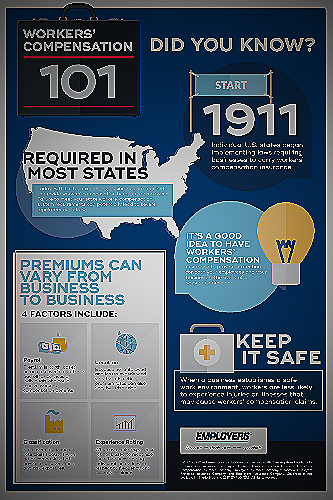Workers Compensation Miscarriage Claims 2023
In 2023, workers compensation miscarriage claims remain a pressing concern for many employees. Miscarriage is a heartbreaking event, made even more devastating when it occurs as a result of a workplace injury.
While workers compensation benefits can provide some relief to those who experience a miscarriage, the process can be complicated and challenging. Moreover, some state laws require that a worker prove that her miscarriage was attributable to the workplace injury.
Many women do not receive compensation because of this requirement. As such, the focus on workers compensation miscarriage is critical.
Check out this Youtube video: “Pregnancy, Complications, Miscarriage, and Other Loss at Work.” If you want to know your rights and the compensation you deserve as a worker who experienced miscarriage, this video is a must-watch.
Don’t miss this insightful and informative video that tackles workers’ compensation related to miscarriage. Understanding your legal options can help you ease your emotional and financial burdens, and this video will guide you through it.
Watch it now!
Understanding Workers Compensation Miscarriage Claims
What is a workers compensation miscarriage claim?
A workers compensation miscarriage claim is a claim filed by a pregnant worker who has a miscarriage that is believed to be caused by the conditions of the workplace. It is a type of workers’ compensation claim that is different from other workplace injuries.
How does a worker prove a workers compensation miscarriage claim?
In order for a worker to prove a workers compensation miscarriage claim, the burden of proof is on the worker. The worker must provide evidence that the miscarriage occurred as a direct result of their job.
This evidence may include medical records, witness statements, and expert medical opinions. It is important for the worker to seek medical attention as soon as possible after the miscarriage and to inform their employer of the situation.
Benefits under workers’ compensation may cover medical treatment as well as lost wages.
Common Causes of Workers Compensation Miscarriage
Exposure to harmful substances
Exposure to certain substances in the workplace has been linked to miscarriage. These harmful substances can include chemicals, radiation, and other toxins.
For example, workers who handle chemotherapy drugs or work in industries that involve exposure to lead or mercury may be at risk for miscarriage. Other common harmful substances include pesticides, solvents, and industrial cleaning agents, among others.
Direct trauma
Physical impacts and trauma can also cause miscarriage in the workplace. These may include falls, accidents involving heavy machinery, or being struck by falling objects.
In some cases, injuries sustained in an incident may not cause immediate harm but can lead to complications later in the pregnancy that result in miscarriage.
Improper working conditions
Improper working conditions can also lead to miscarriage. These may include overexertion or repetitive stress injuries, as well as exposure to extreme temperatures or ergonomic hazards.
For example, workers who are required to stand for long periods of time or perform repetitive motions may be at increased risk for miscarriage. Additionally, exposure to high levels of stress or workplace harassment can also impact a woman’s pregnancy and increase the risk of miscarriage.

Compensation for Workers Compensation Miscarriage Claims
Medical Treatment
Under workers’ compensation, benefits can cover medical treatments for miscarriage injuries occurring as a result of the job. However, there are state laws that require workers to prove that the miscarriage was a direct result of their workplace injury.
Lost Wages
Workers’ compensation benefits can also cover lost wages due to miscarriage injuries if the worker can prove it happened as a direct result of their job.
Other Forms of Compensation
In addition to medical treatment and lost wages, workers’ compensation may offer additional benefits for miscarriage claims. However, it’s important to consult a workers’ compensation attorney familiar with the laws of your state for guidance.
Legal Considerations for Workers Compensation Miscarriage Claims
Why speak with a workers compensation attorney?
When a pregnant worker suffers a miscarriage due to a workplace injury, workers’ compensation benefits are available. However, obtaining compensation for a miscarriage is challenging as state laws require the worker to prove that it occurred as a direct result of the job.
In such cases, having the right legal representation to guide the worker through the process is crucial.
A workers compensation attorney can assess the details of the case to determine if the worker has the grounds to pursue compensation for their miscarriage injury and provide guidance to improve the possibility of an acceptable settlement.
How to choose a workers compensation attorney
Choosing a qualified and experienced workers compensation attorney is crucial in obtaining a favorable outcome for a miscarriage workers compensation claim. One factor to consider is the experience of the attorney in handling similar cases in the past.
Another factor to consider is the attorney’s reputation in the legal community. Workers can check online reviews, get referrals from friends or family, or conduct research online on their experience and the success rate of their previous cases.
Other important factors include the attorney’s fees, communication and availability during the course of the case, and their knowledge of state laws governing workers compensation claims for miscarriage injuries.
Conclusion
Workers’ compensation miscarriage claims can be complex and require significant evidence to prove that the miscarriage was a direct result of the job. While shift work, long working hours, and physical workload have all been linked to increased risk of miscarriage, proving causation can be difficult.
However, if a worker can prove that their miscarriage was work-related, they may be entitled to compensation for medical treatment and lost wages. It is important for anyone experiencing a workplace injury, including loss of pregnancy, to consider seeking legal advice from a workers’ compensation lawyer to help navigate the process and ensure that their rights are protected.

